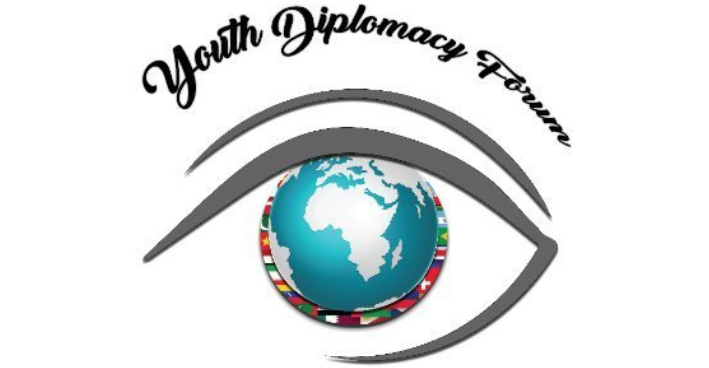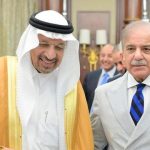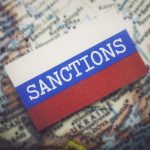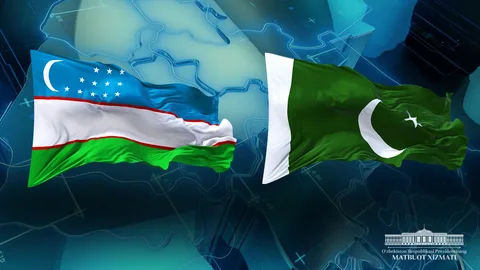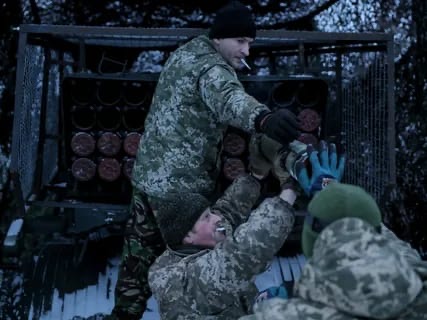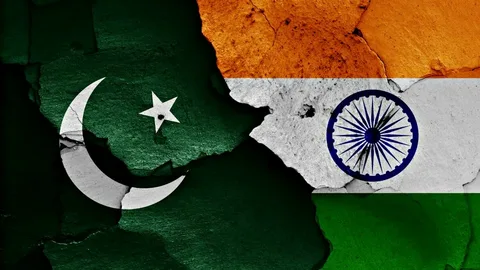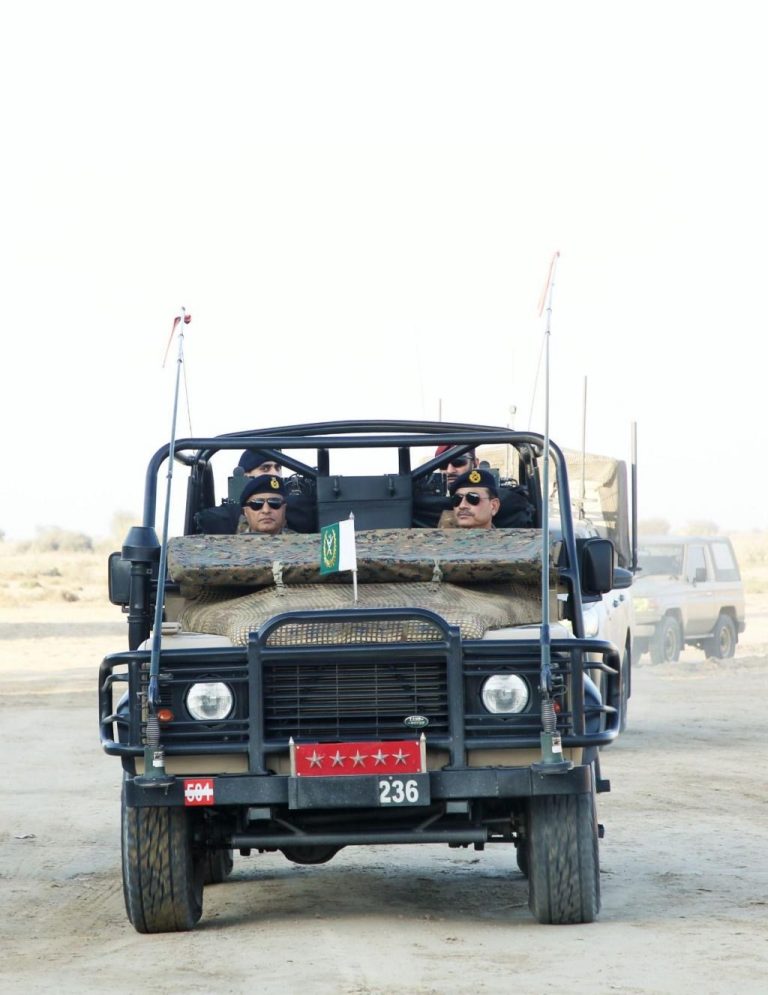Sanctions are one of the mostly used and known political factors around the world. It especially imposed by countries which aim to realize their own interest via the consequences of sanctions over those states. The main explanation of sanction is about implementation of concrete policy of state before or during the conflict situation to become advantageous country.
It targets to arrange distraction or weaken effect on the state by other state, even states or organizations in any period of struggling. Distraction effect is accepted as one for making a pressure because of having considered results from several aspects, and the first is political, meanwhile economic, social, cultural, military based advantageous are very important as a part of political sanctions as well. Additionally, the intention consists of achieving the goal with remove the rival or enemy from any political struggling or conflict.
On these bases, there are so many things should be known for comprehensive understanding about sanctions. It could be accepted that sanctions equal to development and ways of new solutions. It means another effectiveness of sanction is to force countries to realize their own interests, in the meantime establish the condition for their own development. Also, it is the approach to arrange condition for advancement without any exact guarantee. In the contrast sanctions emerge challenging for imposed countries. So, the situation is also different for the imposed states to get weak or have failure.
This given information should be strengthened with empirical examples from modern political occasions. Especially Russian-Ukrainian war and whole imposed sanctions against Russia would be great example in this context. Because the war is still continuing.
As it was mentioned sanction is the political factor, even the consequence of political processes. In its expanded meaning it is a geopolitical tool because of remove the country from its own unacceptable acting. In this case, the critical question appears: Sanctions really impose to the countries for their own unacceptable actions or are these only the measure of political interests?
At first glance, the answer is so simple, both of them are correct opinions. However, in the comprehensive approach these are truly connected with the relations between or among them. So, the relations and situation must be analyzed for having an eventual decision.

Meanwhile, another question could be asked: Is there any double standards realized?
This is also typical for the general overview of political interests. It means the answer is mostly same for this question as well in terms of political interests. All in all, diplomatic relations, political interests, and the situation should be reviewed for understand the progression.
This example could be accepted as the same for Russia. Nowadays, Russia faced several sanctions because of the war in Ukrainian territories from February 2022. Whereas it faced some other sanctions before the war according to its own political activities, and military operation.
This progress reveals the reason of current sanctions and difficult situation between Russia and Western countries. Western countries imposed vast majority of political sanctions to military activities, state officials and political-economic cooperation.
Also, some cultural and social sanctions could be seemed during this period. Corollary the final political purpose was remove and fed-up Russia with its own actions which recognized as an invasion to Ukraine by Western countries via political-economic pressures.
There was no doubt about Russia’s responses and initiatives against all these sanctions. It is clear cut that primary direction against economy of Russia comes with political impact, however they did not achieve the goal in the final result.
Not only the effectiveness and advantageous of sanctions, but also its working methods remain its huge importance for the next stage of the process. Economic initiatives, political-diplomatic collaborations and cooperation, and financial relations get weak between the states.
No wonder, if the country starts the war, it probably estimates the future crisis and challenging. In the meantime, the imposer countries also assume several essential perspectives, if they aim to struggle against country according to ruining of security, invasion possibility, and etc.
To sum up, the article analyses the measures taken by Russia both domestically and internationally after facing the political and economic sanctions with presenting comparative research.
Sanctions and their historical evaluation:
Sanction is accepted as a political tool for preventing the rivals or enemies, even weaken them from economic, political, social, cultural, military ways to gaining efficient advantages and blockade them regarding to different goals. It emerges an essential role as a distraction effect in the purpose of strategic functions. Sanctions involve punitive measures imposed by countries, international organizations, or coalitions against a state, institution, or individual. These actions are typically a response to violations of international norms, agreements, or human rights. They aim to deter aggressive behavior, promote global security, and address humanitarian concerns.
Operating within the framework of diplomacy and international law, sanctions serve as a non-military tool to resolve conflicts and uphold global stability. The effectiveness of sanctions depends on factors such as international support, the resilience of the target economy, and the willingness of its government to comply or negotiate. However, they can also have unintended consequences, including humanitarian crises, economic struggles for ordinary citizens, and regional instability.
Sanctions have become an increasingly important instrument in international relations, often used to influence the behavior of states and non-state actors without resorting to military force. In this case, it should also be considered to take a glance at types of sanctions to understand the general overview. Regarding historical occurrences, various types of sanctions have been implemented around the world because of some purposes. The five main categories include economic, political-diplomatic, military, sports, and environmental sanctions as primary sanction types. Each type serves a specific purpose and restricts sanctioned entities in different ways. Understanding these sanctions is crucial to analyzing their effectiveness and impact.
Environmental sanctions are penalties imposed to deter activities like pollution and deforestation, aiming to protect ecosystems and public health. On the other hand, sports sanctions are disciplinary actions taken against athletes, teams, or nations for violations like doping or corruption to ensure fairness in competition.
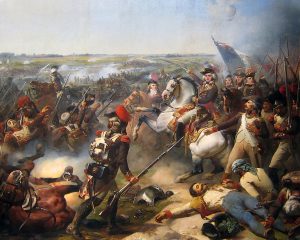
Otherwise, economic sanctions are recognized as their great impact to international, national, and state policy of countries. After political sanctions economic sanctions are the most important because of the creation of implications. Meanwhile, it is accepted as a part of political sanctions in its general meaning.
Economic sanctions primarily include trade sanctions and financial sanctions; both aimed at restricting a country’s financial and commercial activities. Trade sanctions are restrictions on a country’s imports or exports intended to apply economic pressure, though broad embargoes are rare due to civilian impact. Financial sanctions limit access to international financial systems through measures like asset freezes and transaction bans, making them difficult to evade.
Commence to Political-Diplomatic Sanctions, it is the well-known and mostly applied version of sanctions. These measures signal diplomatic disapproval without impacting economic or military relations. They include cutting diplomatic ties, closing embassies, or restricting interactions to pressure a country. Though less severe than economic sanctions, their effectiveness varies, but more flexible like diplomacy itself. It also aims to increase or strengthen more visibility from different community because of its strategic ambitious. The expansion of diplomatic sanctions is connected with diplomatic relations and cooperation with involvement to struggling along-side the initiator.
However military sanctions are imposed to weaken a country’s defense capabilities without engaging in direct conflict. They range from arms embargoes to targeted military actions. These sanctions often follow diplomatic measures and may transition into economic restrictions over time. Sometimes it uses according to obtaining the remarkable advantageous on powerful countries with imposed sanctions.
No wonder every single political implication comes with its reason, and sanction is one of them. Several kinds of reasons could be counted for the establishment of sanctions and their implications. Sanctions can emerge or be imposed for various reasons, often arising from conflicts of interests between states, organizations, or parties from simple issue to irresistible disagreements. These interests may include political dominance, economic factors, disputes, misunderstandings, territorial claims, and even military operations.
In today’s world, ongoing political developments significantly increase the likelihood of sanctions in different ways. Politics is not merely a tool, but a broad phenomenon encompassing numerous mechanisms, factors, and processes. Elements such as conflicts, crises, diplomatic relations, cultural exchanges, wars, and economic partnerships all fall within the realm of politics. ”It should not be forgotten; politics is the component as economics, military, social, cultural, diplomatic factors, and politics is also the phenomenon which include them all.” As a result, any tensions or disputes in these areas can lead to political measures, particularly sanctions. While economic events can generally be viewed through a political lens, the increasing complexity and specialization of global affairs call for a more detailed examination of these issues.
Studies have reported different success rates for economic sanctions, including 22%, 34%, and 44%, depending on their design and context. Another study suggests that non-military sanctions are generally less effective than military action. Conversely, some researchers argue that studies tend to “systematically underestimate” the effectiveness of sanctions by focusing on their shortcomings rather than their benefits. Notably, politicians from countries like the United States and Great Britain often favor sanctions as their preferred course of action.
To fully grasp the role of sanctions, it is essential to understand that they serve as a means to an end rather than an end in themselves. Sanctions can have both direct and indirect consequences, and in some cases, they may prove ineffective. Western nations primarily use economic measures, including sanctions, to assert political influence on a global scale. A struggling economy can pressure the targeted state into negotiations and agreements with sanctioning countries, which can be viewed as a successful outcome. Given this context, a crucial question arises:
Do sanctions achieve their intended goals?
This question can be approached from multiple perspectives, each offering different insights into their effectiveness. In any case, imposing country could announce itself as a winner at the end of that struggling. So, it does not matter to be achieved or not in a real way.
For this reason, sanctions whether minor or long-term can yield results. However, under certain circumstances, sanctions may be merely symbolic. If the targeted country disregards them, government officials may not perceive them as a serious threat. Ultimately, the impact of sanctions varies depending on their nature, objectives, and the context in which they are imposed.
Besides the types of sanctions, the categories of sanctions show their impactful capacity in terms of intentions as well. The classification of sanctions can be accepted into different types, with two primary categories: unilateral and bilateral sanctions, as well as import and export sanctions. These distinctions help illustrate how sanctions function depending on the number of actors involved and the trade flows they affect (Bapat & Morgan, 2017).
Unilateral sanctions are enforced by a single country against another, whereas bilateral sanctions involve a group or coalition of nations imposing restrictions on a specific country or group of countries.
Unilateral sanctions are often seen as more precarious for the imposing nation, as they may result in diplomatic conflicts and economic retaliation without the backing or shared responsibility of other nations. On the other hand, bilateral sanctions spread the impact and risk among multiple countries, potentially making them more effective and less burdensome for those enforcing them.
A well-known type of sanction, export and import sanctions, restrict the flow of goods and services to and from a target country to limit access to essential resources, technology, or products. Export sanctions prevent goods and services from reaching the target country, while import sanctions block the export of goods and services from the targeted nation. This can severely impact key economic sectors that depend on exports for revenue.
Historical Evaluation of Sanctions:
According to written resources it is accepted that first sanctions or the first form of sanction concept had been implemented in Ancient Greec. Certainly, these were not a political tool, but the main measure is to distract or prevent some actions from rivals for having some dominance. During the centuries, existing steps evolved and became what is now known as the sanction phenomenon, gaining importance for its essential meaning.
Although the methods used to enforce sanctions have advanced considerably over the years, their fundamental purpose has remained unchanged. One of the earliest recorded instances of sanctions dates to the 5th century BC. In 432 BC, the Athenians imposed sanctions through the Edict of Megara, barring the citizens of Megara from entering markets within the Athenian Empire.
Historical records show that these sanctions led to starvation for the citizens of Megara, and some historians believe they contributed to the outbreak of the Second Peloponnesian War (Kagan, 1969). Similar events of this nature occurred multiple times in ancient Greece.
Although political, diplomatic, and economic sanctions have been in use since ancient times, they became a key tool and were accepted as a political power impact in international relations only in the 20th century.
Despite their long history, sanctions have become more advanced and impactful in modern times. As Nicholas Mulder notes, the modern concept of sanctions as a tool of economic warfare emerged prominently in the aftermath of World War I, reflecting a shift in how nations exerted influence without direct military engagement (Mulder, 2022).
Another significant example occurred during the Napoleonic Wars (1803–1815), when Napoleon I attempted to weaken British dominance through the Continental System, which banned European trade with Britain. However, its effectiveness was limited due to implementation challenges and widespread smuggling, ultimately causing economic strain on France and its allies more than on Britain (Crouzet, 1964). This highlights a key historical lesson: sanctions must be carefully planned to be effective.
Evolution and Impact of Sanctions in International Relations:
Sanction-based blockades were widely used during World War I. Following the war, the use of sanctions through international bodies like the League of Nations gained support as a peaceful alternative to armed conflict. The League’s treaty permitted sanctions under specific conditions, such as violations of Article 10, threats or acts of war, refusal to pay arbitral awards, or initiating war without consulting the League’s Council or Assembly. Over time, sanction strategies have significantly evolved.
In the 19th century, economic sanctions often took the form of blockades, where military forces blocked the ports of other nations, even those not at war, to apply pressure. While most blockades occurred during war, “Pacific blockades” were also used in peacetime to compel debt payments or resolve disputes.
After the First World War there was a widespread call for pacifism. U.S. President Woodrow Wilson defended the imposition of sanctions, saying, “Apply this economic, peaceful, silent, deadly instrument, and force will be unnecessary.” Although the United States never joined, Wilson was instrumental in establishing the League of Nations, the predecessor of the United Nations.
The League’s charter included provisions for the imposition of sanctions, although there was a significant setback in 1935 when the League, in alliance with Great Britain, imposed sanctions on Italy after its occupation of Ethiopia. These sanctions were ineffective as they were not enforced by other European states together.

Nevertheless, the principles behind the League of Nations gave rise to multilateral sanctions, where many countries cooperate to impose sanctions on another country. In contrast, unilateral sanctions are imposed by one country against one target.
In its early years, the League of Nations referred to sanctions as “the economic weapon” or l’arme économique, a term shaped by the wartime blockade experiences of World War I (Mulder, 2022). This marked the beginning of sanctions as a method of applying pressure without direct military engagement. After World War II, the establishment of the United Nations in 1945 formalized the use of sanctions as a foreign policy tool.
Article 41 of the UN Charter granted the Security Council authority to implement sanctions as a non-military response to threats against international peace and security (United Nations, 1945). During the Cold War, sanctions were mainly implemented by the United States, the United Nations, and the European Union. While the EU imposed some sanctions independently, research indicates that out of 81 EU-imposed sanctions, 71 were conducted jointly with either the U.S. or the UN, illustrating the influence of transatlantic cooperation (Portela, 2020).
The concept of economic sanctions was first advocated during the 1919 Paris Peace Conference by British representative Lord Robert Cecil and French counterpart Léon Bourgeois. Despite their different backgrounds, both men believed that the League of Nations needed a robust enforcement tool. Cecil, an aristocratic lawyer and critic of the Conservative Party, was a supporter of free trade and had served as England’s first minister of blockade during the war.
Bourgeois, a son of a Republican watchmaker, became Prime Minister of the Radical Party in the 1890s and promoted a political philosophy based on mutual aid, or “solidarity.” Both agreed that the League should impose economic pressure on the Central Powers to uphold the Versailles order and deter future aggression. These states would be labeled as “aggressors,” a new moral and legal classification, and would be economically isolated by the League. This adaptation of economic warfare tactics for peacetime was a significant evolution.
This period led to the establishment of a technical and administrative network composed of lawyers, diplomats, military specialists, and economists. The work initiated during the war and continued after 1919 had a profound impact. As European governments expanded suffrage and social welfare, they began to view other populations as legitimate targets for coercive measures. These developments collectively brought about a fundamental shift in the international system.
Eventually, economic sanctions have become a key tool of deterrence in international relations, comparable in strategy to nuclear weapons during the Cold War. Though less immediately destructive, they can severely damage a nation’s economy and cause long-term humanitarian harm. By the 21st century, sanctions have been increasingly used as a favored alternative to military force for exerting international pressure.
Political and Economic sanctions in International Relations:
The effective use of sanctions can boost the enforcing country’s authority and global influence by demonstrating its strength and resolve. Sanctions offer psychological advantages and enhance the country’s ability to influence behavior both internationally and domestically. By damaging the target’s economy, the imposing nation gains political and economic leverage, reinforcing its dominance on the global stage.
However, sanctions often result in serious negative consequences. They typically signal a breakdown in diplomatic relations and can lead to further tensions. While aimed at pressuring the target, sanctions can disrupt international cooperation and have broader impacts on global socio-economic stability and development.
Political-Diplomatic Sanctions:
Political-diplomatic sanctions could be observed in several areas because of the flexibility of diplomacy and the negotiation process. Also, many important or even unnecessary implementations establish associations with diplomatic power. Sometimes diplomacy can be used to distract or neutralize an opponent in the initial phase, emerging through diplomatic steps without direct confrontation or crisis.
When diplomacy is not accepted as an effective factor or is insufficient, imposing countries begin to use significant, targeted sanctions or persistent diplomatic measures either individually or in combination.
These sanctions can include travel bans, suspension of diplomatic ties, withdrawal of ambassadors, or cancellation of treaties. Such measures serve as warning signals to the targeted nation, urging a shift in behavior without immediate recourse to economic or military actions. In many cases, these actions are coordinated with international organizations to amplify their legitimacy and pressure.
As a result, political-diplomatic sanctions become an essential tool in shaping international relations and influencing state conduct without direct conflict.
In general, it is definitely visible in the example of sanction against Russia after invasion of Ukrainian territories. Especially Europe before and after beginning invasion have started to cooperation against any possible occupation danger from Russia. This unanimous cooperation confirms the importance of diplomatic negotiations and activities in the context of political-diplomatic sanctions.
Economic Sanctions:
In previous explanations it was revealed that when political-diplomatic sanctions show less impact on the sanctioned state, the next stage will be keen significant diplomatic sanction or other strong sanction form, such as economic sanctions.
Because economic sanctions mostly have direct target to keep under the pressure enemy or opponent. These sanctions are often designed to disrupt key sectors such as finance, trade, and energy to maximize pressure on the target state’s decision-making process.
Sanction to trade sector is one the form of economic sanction including with financial sanctions. Sanctions on trade have been demonstrated in suspension of cooperation with imposer state or other state or presenting some new opportunities to different countries for disrupt that collaboration.
Impact of Financial Sanctions and Asset Freezes:
However, financial sanctions would be seen as critical and perilous for the country’s economic foundation and currency power and stability. They can lead to restricted access to international banking systems, freezing of assets, and limitations on foreign investment. Over time, such restrictions may cause inflation, reduce economic growth, and undermine public confidence in the national economy.
Sanctions on the financial sector significantly disrupt a country’s economy by destabilizing markets, reducing purchasing power, and devaluing currency. Asset freezes, a key measure, block access to foreign-held funds, limiting trade and investment. These sanctions aim to restrict the financial operations of targeted entities, pressuring them to change behavior or meet specific demands.
They are part of broader efforts to enforce international norms and address global challenges like terrorism, nuclear proliferation, and human rights abuses. According to Giumelli (2017), financial sanctions are among the most effective tools for exerting international pressure, often producing significant economic consequences that influence political decision-making.
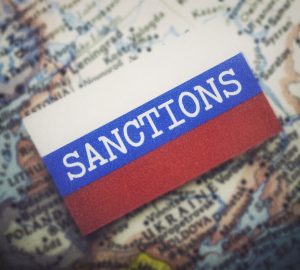
Asset freezes are frequently applied in global politics, serving as a means of exerting pressure without resorting to military force. For instance, the European Union has currently frozen $24.9 billion in Russian private assets, contributing to a total of $210 billion in frozen assets—amounting to approximately 60% of Russia’s western-held properties.
Similarly, the United States has extensively used asset freezes as a tool to achieve its foreign policy objectives. A notable example is the sanctions imposed on Russia, where up to 10% of the country’s assets are frozen in the U.S. Additionally, numerous Russian oligarchs and businesses have had their assets blocked in response to geopolitical conflicts and actions considered unacceptable by the international community.
In conclusion, sanctions have a stronger impact on the financial systems of targeted countries. They reduce financial exchanges between sanctioning and targeted nations, limit access to international finance, and can lead to internal economic disruptions.
The restricted access to financing and the possibility of broader economic shocks increases the risk of a banking crisis. Expensive and multilateral sanctions can significantly cause financial instability and currency crises due to the potential for speculative attacks driven by the political risks associated with sanctions.
General Sanctions against Russia:
According to Brown (2009), the dissolution of the Soviet Union in December 1991 marked one of the most significant geopolitical transformations of the 20th century, leading to the emergence of the Russian Federation as its successor state. On December 25, 1991, just five days before the seventieth anniversary of its proclamation, the Soviet Union dissolved, leading to the creation of the independent Russian Federation, which adopted a new constitution establishing a federal semi-presidential system.
Since the early 2000s, Russian politics has experienced a decline in democratic practices and a shift toward authoritarian rule, largely under Vladimir Putin’s leadership. Russia has been involved in multiple conflicts, including the 2008 war with Georgia and the 2014 annexation of Crimea from Ukraine, with further annexations occurring in 2022.
The country ranks poorly in areas such as democracy, human rights, and press freedom, and is plagued by significant corruption. As Levitsky and Way (2020) note, Russia exemplifies a form of competitive authoritarianism in which democratic institutions exist in form but are routinely subverted by the ruling elite to maintain control.
Russia’s geopolitical positioning seems as probably same from the Tsardom of Russia and Russian Empire. Essentially, western countries sharply stay behind this opinion regarding the historical acting of Russia during this period. Russian bear claims the hegemony on a few countries or some specific territories according to historical territorial integrity of Russian Empire and former USSR.
Ukraine is one of the examples in this context. This claim was expanded after annexation of Crimea. It could be observed the superiority purposes from every single great country. The rationales behind this acting are strong political leadership and superpower claim for reinforcement of historical might and intention of territorial integrity.
However, the modalities for realizing existed purpose consist of various kinds of territorial expansion, territorial integration, or even invasion. In every example it shows the areal expansion for geopolitical power. It is no coincidence that Russia do not want to imagine the world without the impact of itself.
Additionally, important progression depends on powerful leader and its role for keeping the promises and realizing the responsibilities. Undeniable historical facts reveal mentioned reality in the example of Pietro the Great, Ekaterina the Great, Alexander First, Vladimir Lenin, Joseph Stalin, Leonid Brejnev, and now Vladimir Putin.
Besides its unethical and unacceptable political actions, he is powerful political leader especially in the exact deep understanding of Russian political-psychology. However, President Yeltsin throughout 90’s illustrated less productivity and mighty impact in Russia and international arena.
During Putin’s rule world had faced some radical changes according to his own ambitious and reinforcement of Russian geopolitical hegemony.
After that Russia’s first significant move to alter the geopolitical landscape and assert its influence in global politics was the 2008 seizure of Abkhazia and South Ossetia.
At the time, around 150 sanctions were imposed, but they were neither severe nor irreversible. As a result, the Russian economy remained stable, and many international partnerships were unaffected.
Following the Ukraine crisis, the number of sanctions against Russia rose sharply, though they were initially implemented gradually. One of the primary concerns driving these sanctions was the potential for a full-scale Russian invasion of Ukraine.
Between 2014 and 2022, sanctions increased significantly, highlighting the escalating tensions between Russia and the West over geopolitical conflicts, territorial disputes, and strategic differences.
Russia’s dangerous political activities encouraged Western countries for starting to impose sanctions against it. Especially after 2008 Russian invasion of Abkhazia and South Ossetia Russia faced several challenges including with most of sanctions.
Few years later, U.S. National Security Advisor John Bolton mentioned that “Washington had already implemented all required sanctions against Russia in connection with its 2008 war with Georgia. That conflict led to Russia recognizing two separatist regions South Ossetia and Abkhazia as independent states” (Reuters, 2018). All in all, the exact reason of sanctions was invasion of Georgian territories.
Whereas approximately same occasion has been happened with different progression from Russia, but this time the main target was Ukraine. Russia took Eastern Ukrainian territories and Crimea, finally finished the expected annexation.
It was also well-known that Western countries would start to impose sanctions, and it has also been realized. Then Western countries began to impose lots of sanction for prevention of areal aggression of Russia. Significant diplomatic, political, economic sanctions have been implemented by USA and EU particularly.
In response to Russia’s actions in 2014, both the European Union and the United States implemented a series of coordinated sanctions. The United States suspended trade and investment talks with Russia and halted military-to-military cooperation. Additionally, the bilateral U.S.-Russia presidential commission was temporarily suspended (RFE/RL, 2018).
The U.S. also imposed a ban on the issuance of export licenses for defense-related products and services to Russia, alongside restrictions on the export of various oil and gas technologies. On the European side, the EU cancelled the planned EU-Russia summit and instructed its embassies in Russia not to issue visas to residents of Crimea.
Furthermore, the European Investment Bank suspended funding for projects in Russia, reflecting a broader effort to apply diplomatic and economic pressure. Another essential fact is that Russia expelled from G8 countries.
After these struggling Russia did not stop to realize its own politics and ignored most of sanction. However, EU and USA continued to impose sanctions to suspend Russia and help Ukraine in Crimea issue.
Sanctions after Russian-Ukrainian War:
After Russia’s invasion of Ukraine in 2022, Western nations and their allies imposed extensive sanctions and boycotts intended to disconnect the Russian economy from the global financial system. Despite these efforts, the Russian economy has shown considerable resilience.
On February 21, 2022, after Vladimir Putin recognized the independence of the Donetsk and Luhansk People’s Republics, Western nations and others-imposed sanctions on Russia. Following the start of hostilities on February 24, 2022, more countries joined in applying sanctions aimed at severely damaging Russia’s economy.
These measures were broad, targeting individuals, banks, businesses, currency exchanges, and both exports and imports. A key action was cutting off major Russian banks from SWIFT, the global network for international transactions, although some access was kept for gas payments.
Additionally, sanctions included freezing the Russian Central Bank’s foreign exchange reserves, totalling $630 billion, to limit its ability to counter the sanctions. By March 1, the total value of frozen Russian assets had reached $1 trillion.
Many multinational companies withdrew from Russia not only to comply with sanctions but also to mitigate the economic and reputational risks of doing business there. Neutral countries like Switzerland and Singapore also agreed to implement partial sanctions.
In reaction to Russia’s invasion, German Chancellor Olaf Scholz halted the Nord Stream 2 pipeline project and launched a policy to achieve energy independence from Russia.

For the first time since World War II, Germany supplied arms to Ukraine and created a €100 billion defense fund. The German industry shifted from relying on Russian natural gas to increasing energy production from renewable sources, importing more gas, and using coal for heating and power while also building new power generation facilities.
During the NATO extraordinary summit in Brussels on 24 March, U.S. President Joe Biden unveiled further economic sanctions against Russia. These sanctions restricted the Russian Central Bank’s ability to use gold for transactions and introduced additional measures targeting defense companies, the leader of Russia’s largest bank, and more than 300 members of the Russian State Duma (U.S. Department of the Treasury, 2022).
On December 16, 2022, the European Union imposed its ninth set of sanctions on the Russian economy. A spokesperson from the Belgian government emphasized the increasing difficulty of implementing sanctions that effectively impact Russia while minimizing collateral damage to the EU.
Since 2014, the European Union has imposed eleven rounds of sanctions on Russia. The eleventh round, introduced in June 2023, focused on dual-use items like computer chips and sought to limit ship-to-ship transfers of sanctioned goods.
Other measures included the suspension of Russian broadcasting licenses across Europe. Following Russia’s invasion of Ukraine on February 24, 2022, the United States significantly intensified its sanctions and export controls against Russia. These measures built on previous sanctions related to Russia’s actions in Ukraine in 2014, cyberattacks, influence operations, use of chemical weapons, and election meddling.
After late 2021 and into 2022, Russia’s economy saw some shifts due to the sanctions imposed in response to the war in Ukraine. In 2022, Russia’s exports increased to $636 billion, up from $550 billion in 2021, primarily driven by rising commodity prices, while imports fell to $351 billion from $380 billion. This resulted in a notable improvement in Russia’s trade balance, which reached $285 billion, and a rise in its current account surplus to $233 billion, up from $122 billion in 2021 (von Massenbach, 2023; Reuters, 2023).

Following the invasion of Ukraine in February 2022, the Russian ruble experienced significant volatility. Within two weeks of the conflict’s onset, it dropped to a low of 150 rubles per US dollar. However, this sharp decline was followed by a strong rebound, largely driven by strict capital controls imposed by the Russian central bank, which limited cash flow, and higher oil and gas prices that increased export revenues (Reuters, 2022; Federal Reserve Bank of Dallas, 2022).
The European Commission has endorsed the Council’s adoption of the 17th package of EU sanctions against Russia, aimed at increasing economic pressure on Moscow and reinforcing the EU’s ongoing support for Ukraine on 20 May 2025. The new measures focus on restricting Russia’s access to military technologies and reducing revenue from energy exports by targeting numerous vessels in Russia’s shadow fleet.
The package also extends the list of sanctioned individuals and entities, including 75 new additions 17 individuals and 58 entities mainly from Russia’s military and defense sectors. These parties now face asset freezes, economic restrictions, and travel bans. The sanctions also cover actors involved in cultural heritage looting, activities in occupied territories, and a key Russian shipping company. An exemption from the oil price cap for the Sakhalin‑2 project remains in place to safeguard Japan’s energy needs.
Political Consequences of sanctions and Russia’s countermeasures:
On February 27, 2022, in response to the sanctions and what he referred to as “aggressive statements” from Western countries, President Putin ordered Russia’s “deterrence forces,” including its nuclear forces, to be placed on a “special regime of combat duty.” This move caused some confusion regarding its exact meaning, though U.S. officials largely viewed it as an “escalatory” action. In the wake of the sanctions and growing criticism of companies maintaining ties with Russia, a boycott movement emerged.
These boycotts affected various industries, including consumer goods, entertainment, education, technology, and sports. The United States implemented export controls to limit Russia’s access to advanced technology, including hardware and software that contained any U.S. components or intellectual property. This policy required companies wishing to sell items such as technology, semiconductors, encryption software, lasers, or sensors to Russia to obtain a license, which was usually refused. The enforcement primarily targeted individuals or companies involved in the shipbuilding, aerospace, and defense sectors.
Russia’s Response to International Sanctions:
Russia has taken significant countermeasures against “unfriendly countries” and companies that adhere to sanctions imposed by the United States, the United Kingdom, the EU, and other institutions targeting Russia and Belarus. These retaliatory sanctions present major challenges for global companies attempting to comply with all relevant regulations, potentially accelerating the departure of additional businesses from Russia.
Notably, during the Russia-Ukraine war, the term “unfriendly countries” has been frequently used by the Russian government. By April 29, 2022, Russia had implemented several measures against these “unfriendly states.”
According to data from the Yale School of Management, nearly 1,000 Western companies have either shut down or scaled back their operations since the conflict began.
In response, Russia implemented countersanctions to address the restrictions placed on it. President Vladimir Putin signed a decree outlining economic countermeasures against foreign states and international organizations that Russia considers hostile. The invasion of Ukraine on February 24 led the United States and its allies to impose unprecedented sanctions on Russia and its business elite actions that Putin characterized as an economic war.
Given Russia’s role as a major producer of natural resources, Western efforts to isolate its economy have contributed to a global economic crisis, triggering price hikes and concerns over food shortages. Putin has repeatedly warned about Moscow’s retaliatory measures.
Russia’s countermeasures primarily involve economic and investment policies. Since the West imposed sanctions, Russia’s $1.8 trillion economy has faced its sharpest downturn since the Soviet Union’s collapse in 1991, alongside rising inflation. A significant restructuring of Russian assets is underway, with major Western investors like BP and Shell withdrawing, leading to increased state control over the economy as oligarchs attempt to reorganize their business empires.
After 2014, Russia faced over 1,500 sanctions. Between 2014 and 2018, Russia imposed a series of countersanctions on the United States, the European Union, and other Western countries in response to sanctions levied against it over the annexation of Crimea and other geopolitical tensions.
Moscow barred nine U.S. officials, including former House Speaker John Boehner, Senate Majority Leader Harry Reid, and Senator John McCain, from entering Russia. It also announced entry bans on additional U.S. and foreign officials, though it did not disclose the identities or the number of individuals affected.
As a further retaliatory measure, Russia banned the import of most food products from the U.S., the EU, and other sanctioning countries. This food import ban was progressively extended first to August 6, 2016, then to December 31, 2017, and finally through the end of 2018. Additionally, in diplomatic retaliation, Russia declared 23 British diplomats personae non-grata and expelled 60 U.S. diplomats from the country.
By February 2022, number of sanctions had reached 2,750, making Russia one of the most sanctioned countries, second only to Iran, which had 3,600 sanctions at the time. However, after 2022, Russia became the most sanctioned country, with more than 11,000 direct and indirect sanctions imposed, bringing the total to over 14,000 a 400% increase. Currently, it is reported that more than 18,000 sanctions have been imposed.
Russia has significantly expanded its economic and strategic partnerships, increasing cooperation with China, Iran, Turkey, Central Asian states, and Caucasian countries more than 20 times compared to previous years. In the meantime, Russia aimed to expand its military budget. One of Russia’s primary objectives is to increase its military budget and compete with other nations in this regard.
In 2013, Russia’s military budget was $91 billion, Russia sought to invade, had a military budget of only $4.9 billion. Since 2000, Russia has nearly tripled its military spending, which can be seen as a direct factor contributing to its financial difficulties.
Regarding Russia’s financial situation, up until January 2022, the country’s financial performance was considered stable and effective. However, by January 2023, Russian federal budget revenues had dropped to 1.356 trillion rubles, a 35% decrease compared to the previous year, while expenditures had risen by 59% to reach 3.117 trillion rubles. As a result, the monthly budget deficit reached 1.76 trillion rubles.
Instead of all pressures and forces by Western countries Russia did not stop, even expand its political goals during these years. Some of years Russia faced crucial complications according to the consequences of sanctions, but it seems that Russian leader has estimated and was ready for several unforeseen obstacles as much as he can.
After the beginning of invasion of Ukraine and suspension of Nord Stream Projects Russia aired an advertisement for making a propaganda about gas export and emerging difficulties in Europe. In this advert they were trying to demonstrate that when Europe suspend the relations and gas import by Russia, they will face uncontrolled hard situation and bring the coldness because their own actions.
The real meaning was to promote the overview of undisputed and fearless Russia to the world. It is clear cut that Russia’s all activities during these years did not work definitely, however Russia did not weaken in whole sides. Also, Russia attempts for maintaining its currency power and financial stability.
Both Russia and the West sought global influence through alliances and diplomacy. In response to sanctions, Russia deepened ties with isolated or marginalized countries—economically, politically, culturally, and militarily—to strengthen its strategic resilience. This approach helped Russia reduce dependence on Western markets by creating alternative trade and investment channels. It also involved establishing Russian-led economic and financial unions to promote shared prosperity and independence from Western financial systems. Through these actions, Russia aimed to assert its sovereignty, protect national interests, and reshape the global order, positioning itself as a major force in global politics, and diplomacy.
Whereas it should comprehensively note that accepted as a key issue in this context is the Nord Stream 1 and Nord Stream 2 projects, which are major pipelines built to transport natural gas directly from Russia to Germany through the Baltic Sea. Operational since 2011, Nord Stream 1 has been a crucial supplier of natural gas to Europe. The Nord Stream 2 project was designed to double this capacity, further increasing Europe’s reliance on Russian energy. The summary highlights the crucial role of natural resources in global geopolitics, particularly through Russia’s operations in the oil and gas sector. The suspension of Nord Stream 1 and 2 has revealed Europe’s energy vulnerabilities and the strategic control over gas supplies, prompting a reassessment of energy policies and alliances. As Russia navigates the challenges of international sanctions, its vast natural gas reserves remain a powerful geopolitical tool, influencing global energy security and the dynamics of international relations.
- BRICS
Corollary, in response to Western sanctions, Russia has adopted countermeasures by strategically shifting its focus toward strengthening ties with Eastern nations. This shift marks a significant change in Russia’s geopolitical and economic strategy, aiming to reduce the impact of U.S. and allied sanctions. As access to Western financial and economic systems became limited, Russia turned to key Eastern partners like China, India, and Iran, Türkiye, Kazakhstan developing multifaceted cooperation in economic, political, cultural, and military areas. Through these alliances, Russia aims to create a new geopolitical bloc that could serve as a counterweight to Western influence.
In this case, it would be important to consider some of critical details about the Russian partnership with other countries, especially with China. Trade between China and Russia reached a record high of $240 billion in 2023. According to China’s Chief Customs Information Office, bilateral trade increased by 26.3% compared to the previous year. Exports from China to Russia saw a significant rise of 46.9%, while Russian imports to China grew by 13%. Initially, both countries aimed to achieve $200 billion in trade by 2023, but Russian customs confirmed that this target was met by autumn. However, due to the loss of Western energy markets, Russia has become increasingly reliant on oil exports to China, with many sources indicating that China was the primary recipient of Russian oil in 2023. After the war Russia concentrate on working with Eastern countries, essentially with China in a number of fields. Because of that Trump blame on Biden Administration for their wrong political actions and impact on creation of great cooperation between Russia and China.
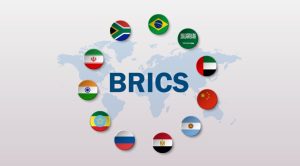
One of Russia’s key objectives today is to establish a robust new economic bloc. In response to Western sanctions, it is working to build strong financial and economic alliances with Eastern partners. These efforts involve implementing economic strategies aimed at strengthening domestic financial systems and supporting economic growth under international pressure. By forming new partnerships and financial structures, Russia aims to reduce dependence on Western systems and safeguard its economic independence.
In this parallel, China has emerged as Russia’s primary economic partner since the start of the conflict. Transactions with Chinese partners are predominantly conducted in yuan rather than rubles, a trend referred to as the “yuanization” of Russia’s foreign trade. As of April 2023, yuan accounted for 23% of exports and 31% of imports, compared to the ruble’s 38% and 28%, respectively. This indicates that Russia now relies more on yuan than rubles for its imports, reinforcing its economic dependence on China.
Russia’s main future plan is to deepen cooperation with the BRICS countries—Brazil, Russia, India, China, and South Africa—across various sectors and strengthen this alliance. This partnership represents a pivotal shift in global economic dynamics, as these emerging economies collaborate to promote strong trade, economic prosperity, and political unity. The foundation of this initiative is the development of a comprehensive framework for trade, economic, and political collaboration among the BRICS nations.
Sharing a common vision for mutual growth and progress, these countries are poised to leverage their collective strength and resources to address global challenges and seize emerging opportunities. In addition, one of the most notable aspects of this collaboration is the proposal to introduce a unified currency system. The BRICS countries aim to streamline currency forms and circulation, setting the stage for a more integrated and efficient financial system.
By aligning monetary policies and standardizing exchange rate mechanisms, they plan to enhance economic stability and ensure smoother operations within the bloc. Simultaneously, the BRICS nations are positioning themselves to reshape the landscape of international trade and finance with this ambitious initiative. Through strategic planning and coordinated efforts, they have shown their commitment to driving sustainable growth and progress, marking the beginning of a new era of economic cooperation and global influence.
Established in 2001 and later joined by South Africa in 2010, BRICS has attracted growing international attention, especially in the wake of the Russia-Ukraine conflict. The group’s prominence has increased as it positions itself as a counterbalance to Western-led institutions. If BRICS continues to grow and solidify its internal cooperation, Russia—together with its BRICS allies—could significantly boost its influence on the global stage and work toward establishing a new center of economic power. This potential shift in global dynamics could challenge existing financial structures and reshape international trade relations. Several key elements underline the union’s considerable strength and future potential. BRICS represents a significant force in the global landscape, comprising approximately 42% of the world’s population. The alliance also accounts for about 25% of the global Gross Domestic Product (GDP), reflecting its substantial economic influence. Additionally, BRICS nations collectively occupy around 26% of the Earth’s total land area, further emphasizing their geopolitical and strategic importance.
The primary goal is to expand the alliance, with efforts to bring in countries like Iran, Saudi Arabia, Türkiye and Argentina. A major focus is to create a new currency and financial system, which would reduce the influence of the US dollar. Undoubtedly, Euro policy of European countries did not achieve such a goal and could not have serious independence against US dollar. Despite they realized some of specific advantageous in the vast majority of Europe. If BRICS countries intend to continue this policy with severe determination, at least possibility they have the effect like Euro currency. Meanwhile if these plans are realized, a new global system could emerge, altering the existing economic order. This would help Russia mitigate the impact of long-standing sanctions and allow for the development of its own financial infrastructure.
To sum up, for the extending cooperation and strengthen BRICS countries have decided to establish ”BRICS+” format. It is easy to observe so many sovereign states have keen interest to make partnership and become a member of this organization. This model could be successful for remarkable application of considered strategies especially by Russia as a new political direction.
Conclusions:
It is crystal clear that sanction phenomenon is utilized as a political tool according to the own interests of countries. As a powerful political tool sanction could not be emphasized undeniable effective tool to reach every goal set. However, this is the way to apply for different matters and struggle peacefully.
In the context of Russian political hegemony, so many practical and theoretical experiences assist to mention that Russia and Russian leaders have already strong immune system according to historical occasions against imposed sanctions. Russia has ability to adapt and remain resilient in challenges, and sanctions are one of them. Mentioned adaptability force to emphasize Russia under the leadership of Vladimir Putin will keep up to illustrate its keen and even aggressive policy in any kind of situation. It is up to Russian state traditions and satisfactory for its political demands.
So, consecutive sanctions implicate negative effect to Russian political-economic power and enhancement, at the same time sanctions could not reach the targeted purposes. It should be supported in facts of un-working sanctions after 2008 capture of Abkhazia and South Ossetia, 2014 the annexation of Crimea, otherwise the progress shows a difference in Russian-Ukrainian war in some cases.
For a few economic-financial gaps Russia could not obtain its intended final destination. On the contrary, Western countries had also motivated Russia and its leader to develop new economic strategies and broaden its global relations for new and contemporary economic advancement and priorities. BRICS is one of the core opportunities to establish superior political-economic dominance, and new world order with great cooperation and eliminate huge challenges as the sanctions come from Western countries in the context of Russian considered geopolitical expansion.
This article is written by Mr. Anar Rasul who is a correspondent on International Relations and graduated from Poland.
